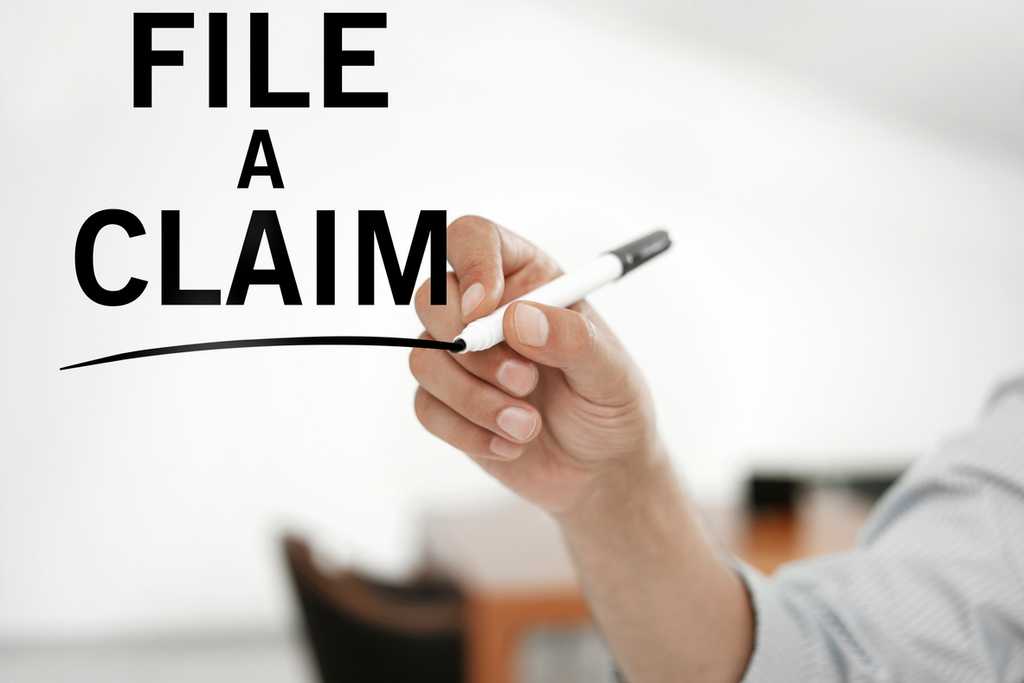When filing an insurance claim, whether it’s for a car accident or an incident in your home, there are a few guidelines to follow. Once you’re safe and the situation is secure, you’ll contact the insurance company and be asked to provide a variety of documentation related to the incident. The insurance company will start a claim file and assign to it a person called an adjuster; the adjuster will review the facts of the claim to determine your payout. This article outlines some of the things you should know and do when filing a claim.
An insurance claim is a request you make to an insurance company, asking it to pay for an event that’s covered by your or another person’s policy. This might include something such as a car accident damage, water or fire damage in your home, or burglary.
Before you contact the insurance company
Follow a few guidelines prior to contacting the insurance company.
Make safety your first priority
If you’re in any danger in your home due to fire and smoke, intruders, or any other reason, leave and get to safety. If you’re involved in a car accident, pull off the road if possible.
Call 911
If someone is hurt, a crime has been committed, you’re dealing with a fire, or there’s some other ongoing emergency
Do your best to administer any needed first aid at the scene — it can and often does make a huge difference. But be sure you (or a bystander) call 911 to get the emergency support you really need. Likewise, if you’re in a car accident caused by another driver’s road rage, your best bet may be to stay in your car (if it’s safe), lock the doors, and call 911. Let the police handle the other driver.
If you’re in a car accident and there’s any question as to who’s at fault, call the police and file a police report. If possible, do this at the scene of the accident.
Document everything you can
Jot down license plates, names, phone numbers, driver’s license numbers, insurer names, and policy numbers. Take photos of any damage to your home or car (and the other car). Make a list of stolen or damaged items. If you receive emergency medical care, be sure to keep any hospital summaries and receipts. If damage to your home requires you to stay in a hotel, buy restaurant meals, or pay for incidentals such as laundry services, save those receipts too.
Contact your insurance agent, If you have one
Your agent knows the specifics related to filing a claim with your insurance company, along with what is and isn’t covered on your policy. They can advise you further on what you need to do, and on whether filing a claim is even worth doing (more about that in a bit). Your agent may help you handle some of the legwork described below.
Filing your claim
Once you’ve gotten these preliminaries out of the way, you’re safe, and the situation has stabilized a bit, it’s time to contact the insurer to file your claim.
Contact the insurance company to report the incident
If you’re in a car accident and the other driver is clearly at fault, you’ll need to contact their insurance company. As stated above, you’ll want to get the other driver’s name, insurance company name, and policy number at the scene.
If you’re at fault, or the other driver fled from the scene, or if you have a homeowners policy claim, you’ll be contacting your own insurer. Chances are that your insurance ID card (for an auto insurance policy) or other policy paperwork lists the phone number you should call. You can also check the insurer’s website or mobile app. You may even be able to upload much of the information your insurance company needs to get started — including photos and a description of what happened.
Find out what documentation is needed for your claim
Whether you contact it by phone or online, find out exactly what information the insurance company needs to start the claim process. This may include your filling out a “proof of claim” form, and sending a copy of a police report. If you don’t get a police report at the scene, the insurance company may ask you to get one after the fact. For an auto accident, you may be asked to get a repair estimate.
Ask about the timing and process of the claim
Be sure you understand any deadlines for the required documentation, and get those materials to the insurance company on time. Ask when the insurer will contact you next.
A likely next step will be a conversation with an insurance adjuster, who’ll be assigned to your claim. The adjuster will investigate the documentation and any photos you’ve submitted, and may visit your home or chosen repair shop to inspect any damage. The adjuster will review the policy contract as well. All this is to decide whether or not to approve the claim, and what amount you should be paid.
If you have any questions or concerns about the claim, contact your adjuster, the insurance company, your agent, or your state’s department of insurance.
FAQ
Do I need to contact the insurance company immediately?
Most insurers advise you to contact them as soon as possible after a car accident or incident in your home. However, the amount of time you have to actually file a claim varies by state, and whether you claim is for damage to property or an injury. Check with your state’s department of insurance to find out exactly how much time you have.
What do I need to file an insurance claim?
You need to provide basic details about what happened, including who was involved, where, and when the incident took place. You may be asked for any receipts you have for damaged or stolen items, or an estimate to repair or replace anything damaged in the incident.
Is it worth it to file an insurance claim?
If filing a claim with your own insurance company, remember that your payout will be subject to your deductible. If the amount of damage is below the amount of your deductible, then it makes little sense to file a claim.
Even if the claim is slightly above the amount of your deductible, you might want to think twice. The claim will likely cause an increase in premium at your next policy renewal (possibly a policy non-renewal, if you’ve filed multiple claims) that could offset your payout. As one expert states, “Once you start to feel the pain financially, that’s when you should probably file a claim.”
Are there situations where I shouldn’t file an insurance claim?
It’s recommended to not file a claim related to neglected maintenance issues or for events not covered by your policy. These likely will be denied, and you may still be faced with a premium increase or policy non-renewal.
Does insurance pay if you're at fault in a car accident?
If you have a full coverage policy, including collision and medical payments insurance, any vehicle damage or injuries that you sustain should be covered by your own policy.
Can you file a car insurance claim without a police report?
Yes, it’s actually quite common for your insurance company to not ask for a police report. This is particularly so if you’re in an accident and there’s no question as to who is at fault. If the other driver agrees that a police report is not necessary, you can move forward without one.
With that said, it may be in your best interest to file a police report. It’s an important piece of documentation that could help the insurance company resolve your claim faster, and settle any discrepancies that may come up later on. And note that if someone is injured in the accident, you may be required by law to file a police report.
Knowing what to do can go a long way
If you’re filing an insurance claim, chances are your life has been turned upside down. Your car or home has been damaged and possibly can’t be used. You or your family members may be injured. It may feel like you’ve lost control of things.
That’s why knowing what to do when filing a claim is so important. It not only can go a long way toward helping you get a fair payout, it can help restore some sense of control.

